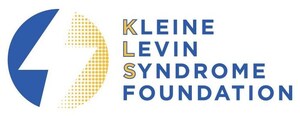Leading clinical text about sleep disorders, ICSD-3, revises KLS criteria based on medical research championed by KLS Foundation
WASHINGTON, July 5, 2023 /PRNewswire/ -- The Kleine-Levin Syndrome Foundation today announced updated diagnostic criteria for Kleine-Levin Syndrome (KLS) published in the International Classification of Sleep Disorders Third Edition (ICSD-3), the leading resource for diagnosing sleep disorders distributed by the American Academy of Sleep Medicine (AASM). The updated information about KLS in the ICSD-3 is based in large part on medical research funded by the KLS Foundation.
The updated diagnostic criteria for KLS will improve clinicians' ability to recognize and accurately diagnose cases of KLS. The revised language will also help shorten the diagnostic journey for patients and caregivers in search of answers. The changes are unlikely to alter existing KLS diagnoses.
The ICSD-3 text is now more inclusive of KLS cases for which symptoms fall outside of the previously understood and narrowly defined parameters while the core defining characteristics of the syndrome remain consistent. The text more clearly specifies the fundamental elements of the KLS definition, which are the core symptoms of KLS observed during episodes including cognitive dysfunction and disinhibited behavior. Updates also reflect that patients experience normal or near normal return to sleep and wakefulness, cognition, behavior and mood between episodes.
The new KLS diagnostic criteria were informed by medical research published in peer-reviewed journals. The changes were compiled, reviewed, and accepted by a working group of medical doctors and sleep research experts chaired by David T. Plante, MD, PhD and including, Isabelle Arnulf, MD, PhD; Gert Jan Lammers MD, PhD; and Sona Nevsimalova, MD, DSc., and the AASM board.
"KLS is a complex and rare neuropsychiatric disorder, the causes of which remain not fully understood. It is my sincere hope that the ICSD-3-TR improves diagnostic precision and accuracy, which will help advance research and clinical care in the disorder," said working group Chair Dr. Plante.
KLS is a complex neurological disorder that robs 1 in 1 million individuals of their adolescence and wreaks havoc on family life. Characterized by long, recurring episodes that last days, weeks, or months, and occur over a decade or more, patients sleep most of the day and night and may experience significant behavioral changes in addition to derealization – "brain fog" so severe that patients have difficulty distinguishing between reality and dreams.
"Advocating for KLS patients and their families is at the heart of everything we do, and that is why the KLS Foundation funds scientific research that informed this update to the ICSD-3—to help doctors, patients, and caregivers find an accurate diagnosis quickly," said Kleine-Levin Syndrome Foundation President Steve Maier, who experienced 18 KLS episodes from age 13-27.
The Kleine-Levin Syndrome Foundation is a non-profit patient advocacy organization that is an educational hub for doctors and clinicians, an incubator for research to find a cause and treatment for KLS, and a home for patient and caregiver support. Support clinical research and learn how the KLS Foundation supports our community at www.klsfoundation.org.
SOURCE Kleine-Levin Syndrome Foundation

WANT YOUR COMPANY'S NEWS FEATURED ON PRNEWSWIRE.COM?
Newsrooms &
Influencers
Digital Media
Outlets
Journalists
Opted In



Share this article